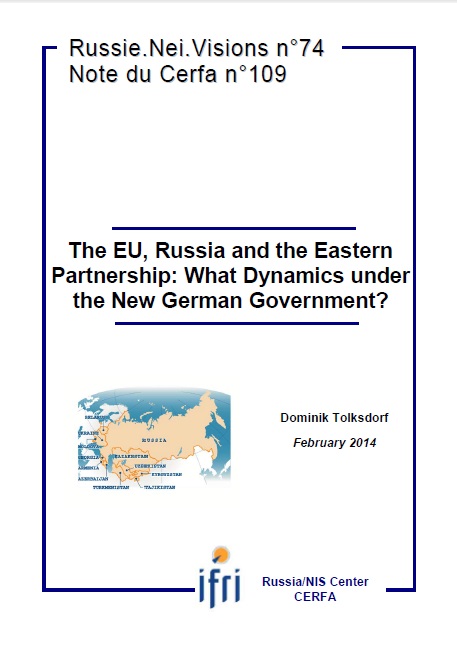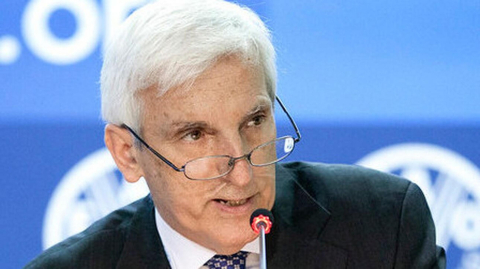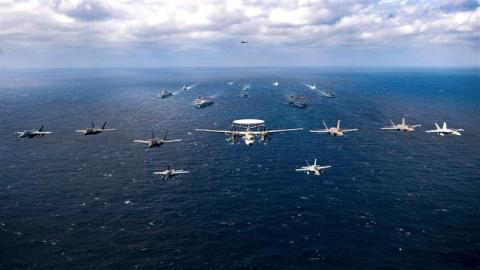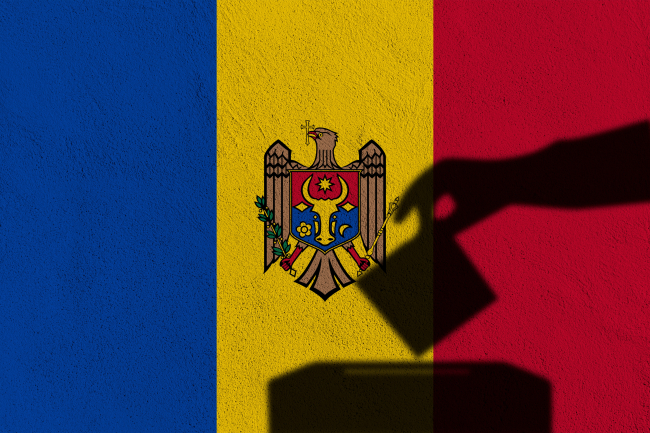The EU, Russia and the Eastern Partnership: What Dynamics under the New German Government?

The Eastern Partnership summit in Vilnius in November 2013 demonstrated that the European Union’s policy toward its eastern neighbors has developed into a highly contentious issue between the EU and Russia.
The summit was overshadowed by the decision of the Ukrainian government not to sign an Association Agreement with the EU and the following mass demonstrations in Kyiv. This paper analyses the EU’s relations with the EaP countries and illustrates that all of them are torn between intensified relations with the EU and joining the Russian dominated Customs Union. Although the EU is rather reluctant to start a power game with Russia in the “shared neighborhood”, the EaP has without doubt led to strained EU-Russia relations. As will be illustrated, it is difficult on the EU level to constitute a clearly unified position on Russia. Among the explanatory factors is Germany, which has in the past often not aligned its position on Russia with its EU partners. German-Russian political relations, however, underwent a change since 2012, as the Merkel government has become more critical about political developments in Russia. Although the new “grand coalition” with Frank-Walter Steinmeier as foreign minister will pursue a more conciliatory tone toward the Kremlin than in the past two years, the German government is nevertheless likely to more closely align its position on Russia with its EU partners, and will also not shy away from criticizing the Kremlin if the Russian government attempts to undermine the EaP.
Dominik Tolksdorf is Transatlantic Post-Doctoral Fellow for International Relations and Security (TAPIR) at the French Institute of International Relations (Ifri). He focuses in his research on the European Union’s external relations and particularly its pre-accession, neighborhood and crisis management policies.
This publication is available in:
French: UE, Russie et Partenariat oriental : quelles dynamiques sous le nouveau gouvernement allemand ? (pdf)
Russian: ЕС, Россия и Восточное партнёрство: новая динамика отношений при новом правительстве в Германии? (pdf)

Available in:
Regions and themes
ISBN / ISSN
Share
Download the full analysis
This page contains only a summary of our work. If you would like to have access to all the information from our research on the subject, you can download the full version in PDF format.
The EU, Russia and the Eastern Partnership: What Dynamics under the New German Government?
Related centers and programs
Discover our other research centers and programsFind out more
Discover all our analysesKazakhstan After the Double Shock of 2022: Political, Economic and Military Consequences
The year 2022 represented a dual shock for Kazakhstan. In January, the country faced its most severe political crisis since independence, followed in February by Russia’s full-scale invasion of Ukraine, which cast uncertainty over the borders of post-Soviet states. These consecutive crises profoundly shaped Kazakhstan’s domestic and foreign policy.

How the Russian Army Changed its Concept of War, 1993-2022
The traditional and high-intensity war that has occurred in Ukraine since Russia decided to invade raises a key issue: did post-soviet Russian strategic thought really prepare Russia for waging this war?
Russia's Nuclear Deterrence Put to the Test by the War in Ukraine
From the outset of its “special military operation” (SVO) against Ukraine on February 24, 2022, Russia, which possesses one of the world’s largest nuclear arsenals, has adopted aggressive deterrence measures and a resolutely menacing rhetorical stance.
Moldova's Crucial Parliamentary Election. What's at Stake?
On the occasion of Moldova’s National Day, August 27, 2025, Chișinău hosted a high-level European delegation composed of Emmanuel Macron, Friedrich Merz and Donald Tusk, who sought to reaffirm their support for the country’s sovereignty and pro-European course. This unprecedented and highly symbolic visit took place at a pivotal moment. Moldova is preparing for decisive parliamentary elections on September 28, whose stakes extend far beyond the national framework.












